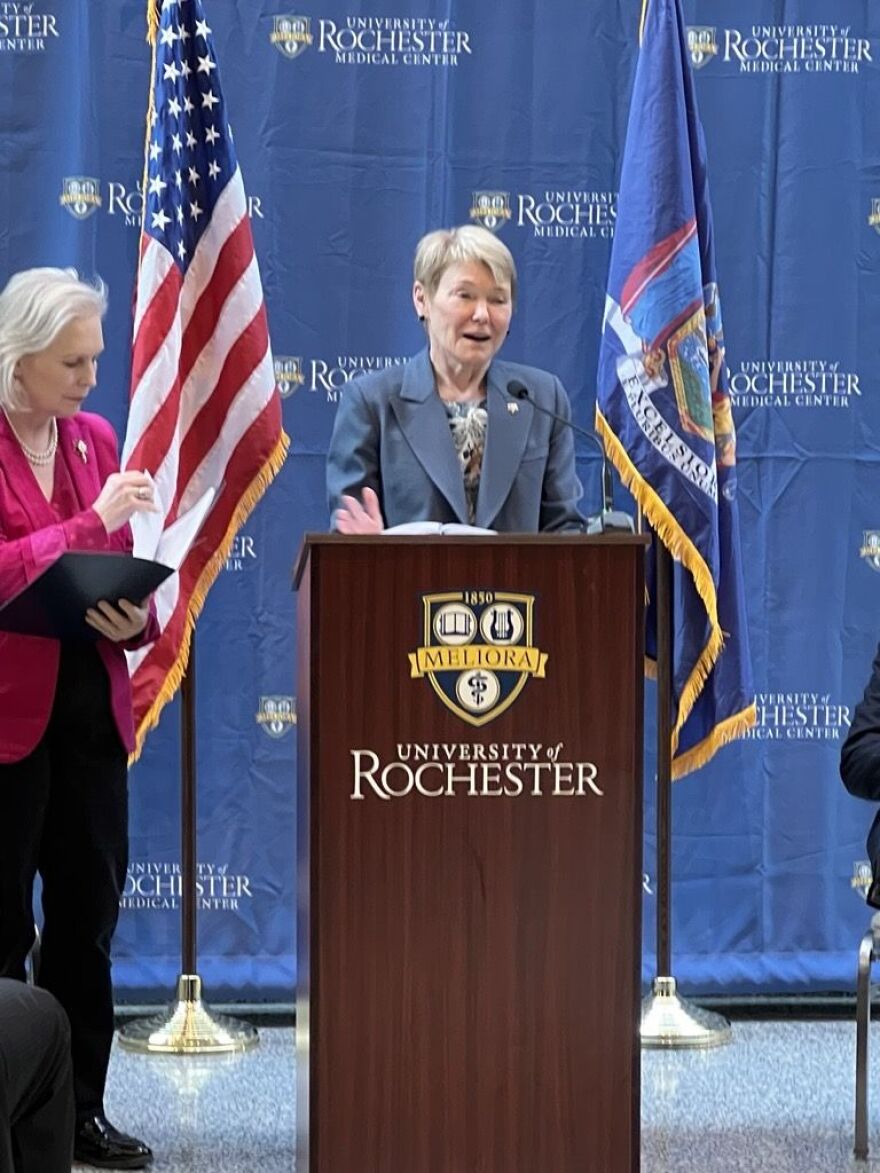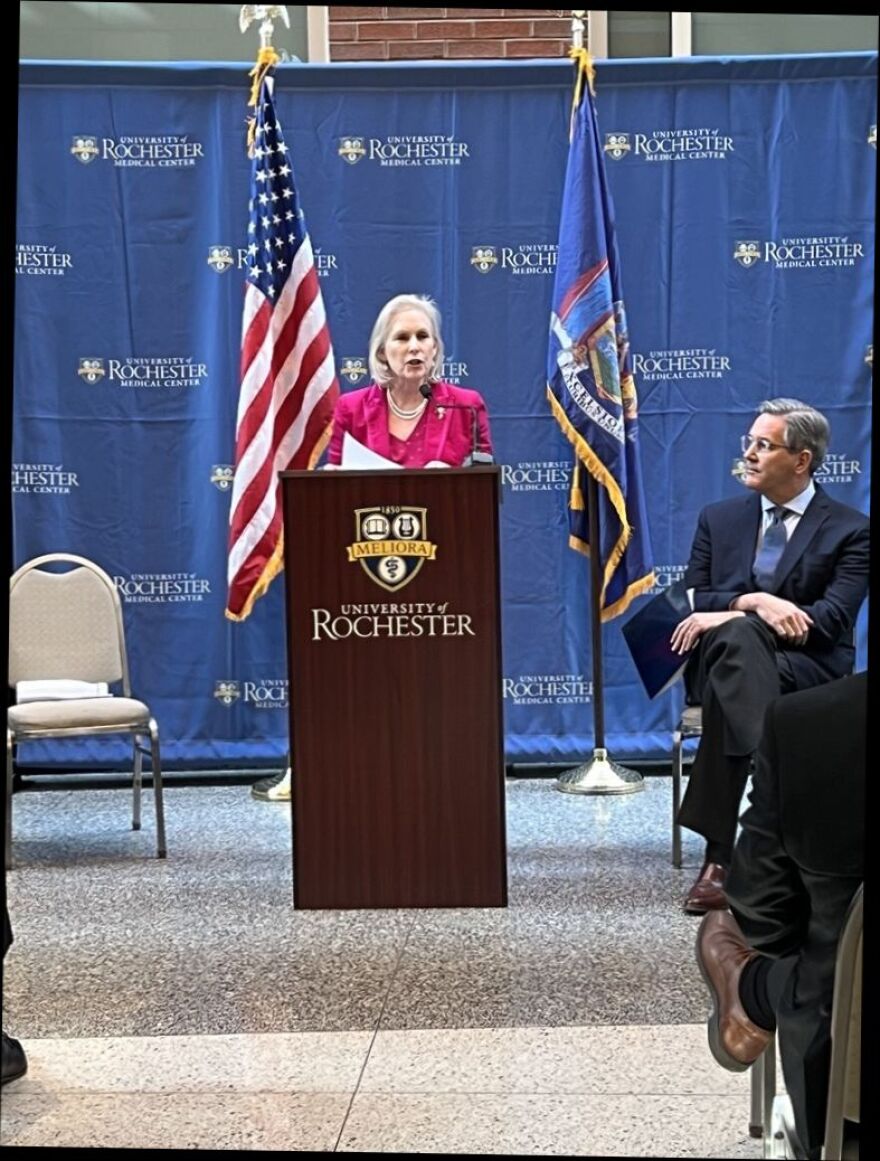
U.S. Senator Kirsten Gillibrand made a stop at the University of Rochester School of Medicine and Dentistry on Friday to criticize the Trump administration’s effort to cut some federal funding for medical research.
The New York Democrat came to the area to talk about a decision by the National Institutes of Health. That agency recently announced a policy capping indirect costs that are associated with grant funding at 15%.
“We have to oppose these attempts at arbitrary caps on costs that include the infrastructure that is actually necessary to do the research, office space, lab space, absolutely critical, needed to keep lights on, heat on, internet, running water flowing,” Gillibrand said.
University of Rochester President Sarah Manglesdorf said that the funding the university gets is critical to working on research that benefits society in a number of ways.

“It allows for the exploration of new ideas and expands our knowledge in ways that ultimately have tremendous ways benefits for society,” said Manglesdorf. “I can attest that the funding model has strict guidelines and auditing functions that attest that every dollar is spent appropriately.”
University officials said that the University of Rochester stands to lose $40 million in funding for indirect costs and Rochester Institute of Technology would lose $10 million. Gillibrand said in a statement that would “cripple their ability to conduct much of their research,” and she added that overall, New York institutions are expected to lose $850 million.
Gillibrand said that while a federal judge has temporarily paused these cuts from taking effect, “they have created chaos and confusion” for the New York institutions that rely on a steady stream of funding from the NIH.
Congressman Joe Morelle, another local Democratic lawmaker also put out a statement saying that he was leading a bipartisan group of New York Congressional colleagues, who sent a letter to the NIH criticizing the proposed changes in the funding formula.


